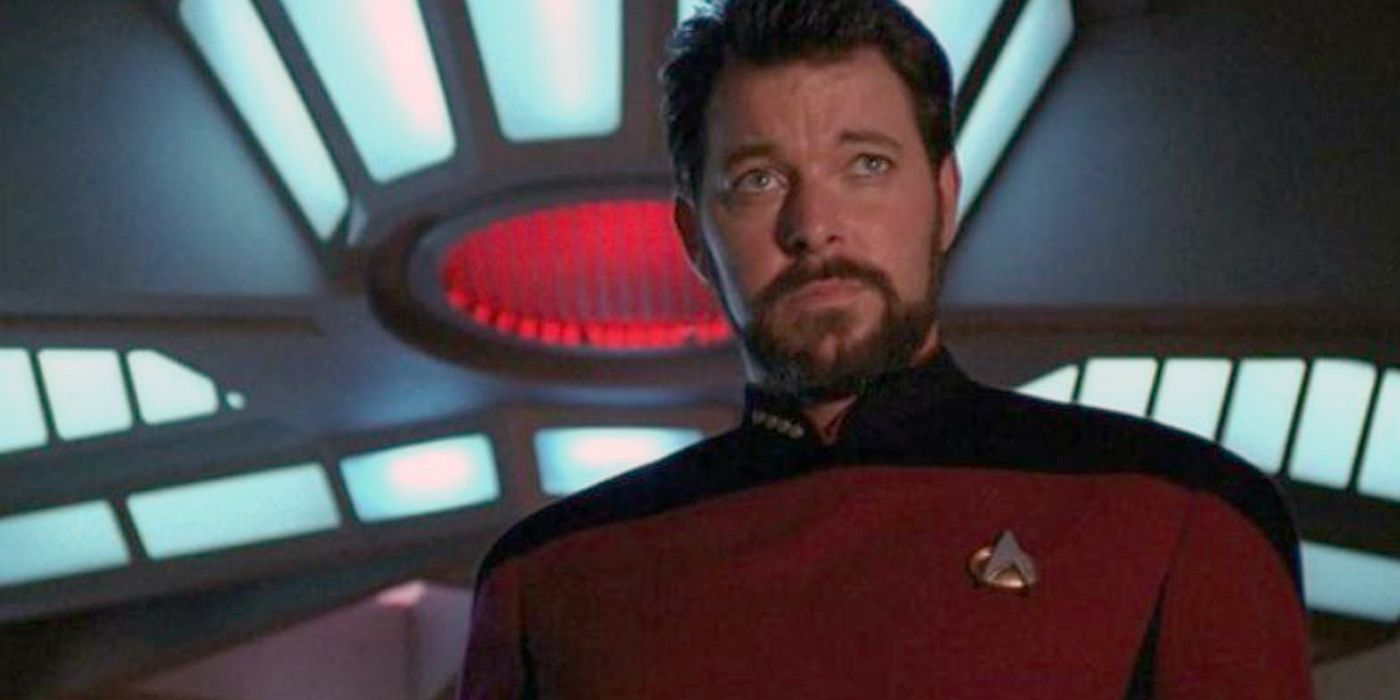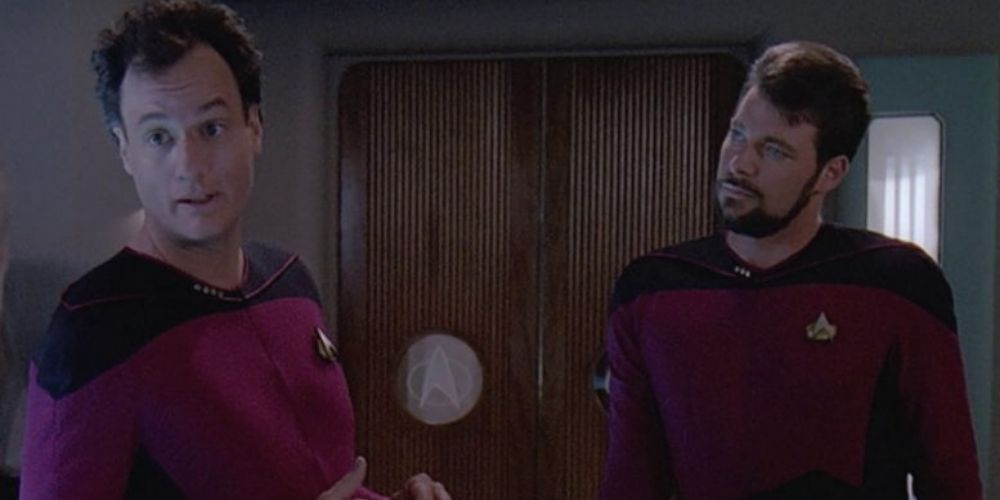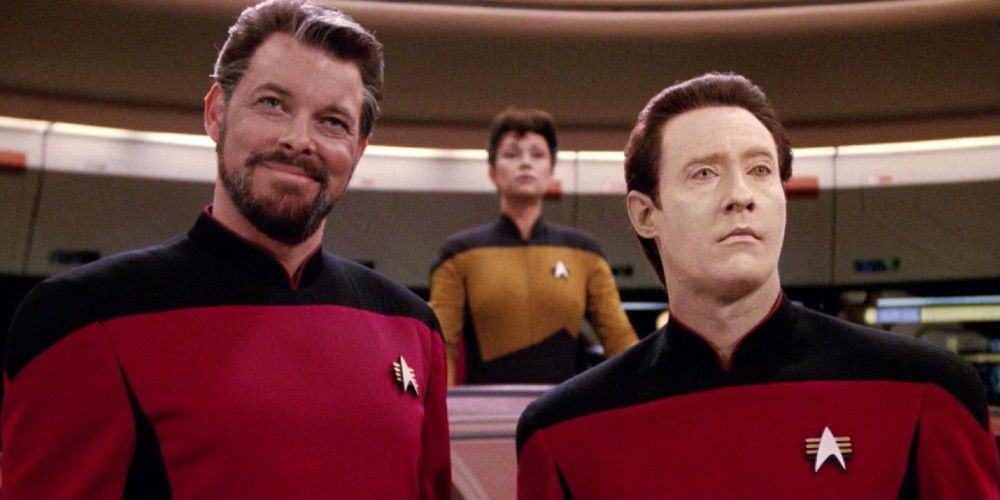The Q Continuum is a well-loved piece of modern Star Trek. Once Q became a guest star guaranteed to excite, the challenge for the franchise was to always find fresh, fun ways to integrate them into a story. It's a bit of remarkable restraint, and it kept those appearances an event. After appearing once on Deep Space 9, it took another three years for the Q Continuum to visit Star Trek: Voyager, and once they did, it revealed a strange connection between the Q and the existence of Commander William Riker.
Q (John de Lancie) teased and tormented the crew of the Enterprise across eight episodes of Star Trek: The Next Generation. Season 2's "Death Wish" brought him to the Voyager, stranded deep in the Delta Quadrant, and the episode tells a special story about another member of the Q Continuum. It begins as Janeway's crew accidentally releases a Q (Gerrit Graham) from confinement in a comet. Later taking the name Quinn, this new Q causes some confusion when his attempt to quickly commit suicide before the rest of the Continuum catches on to his escape. Star Trek's familiar Q appears on the bridge of the Voyager before the situation gets out of hand and quickly catches on to what Quinn was attempting.
The Continuum love their trials, and the two Qs turn the Voyager into a courtroom for a hearing between the stability of the Continuum and Q's right to seek asylum so that he may die. An immortal being who muses on the mortal experience of death, Quinn was confined by the Continuum so that his beliefs wouldn't spread. Arguing for the Continuum's case that Quinn's life is worth immortality, Q brings forth an array of witnesses to show some of the crucial moments that Quinn's assistance caused. It's a surprise when Q pulls Commander Riker in alongside some famous faces of human history, including to Riker himself. But Q's case reveals some wild trivia.
Quinn's jaunts through intergalactic history included a trip to June 1864, during the height of the American Civil War. Quinn rescues Riker's wounded ancestor, Thaddeus Riker, from the front lines of the Battle of Pine Mountain. Q makes the argument that without Quinn's interference, William Riker would never have been born. With his signature casual understatement, Q also suggests that, without Quinn's simple moment of kindness, the Federation itself would one day be doomed. Without Riker's lineage, the Borg would have succeeded in flooding the Alpha Quadrant, assimilating the Federation and moving on, unstoppable.
It's a poignant demonstration of the butterfly effect, and it may have become a reliable trope, creating an underpinning theme in fiction from Bradbury's A Sound of Thunder to Life is Strange. But it's the delivery that makes it count, and Q is unusually passionate about trying to get Quinn to rescind his wish to die. It doesn't work, and Quinn and his advocate, Tuvok, make a successful counter by showing the crew the way Quinn perceives life in the Continuum. It's an endless road full of all the things he's already done before, and all those moments that mean so much to people like Riker are lost in the dust. Janeway's decision is a heavy one, but in the end, Quinn does get his wish.
Quinn's death causes a ripple of change in the Continuum and a civil war of their own. But it also shapes destiny for Riker, though the episode makes it clear he's not supposed to remember what happened. Riker goes on to marry Deanna Troi, and their first son together is named Thaddeus, for Riker's long-ago Civil War ancestor. Through young Thaddeus' brief life, Quinn's lesson retained its importance.



